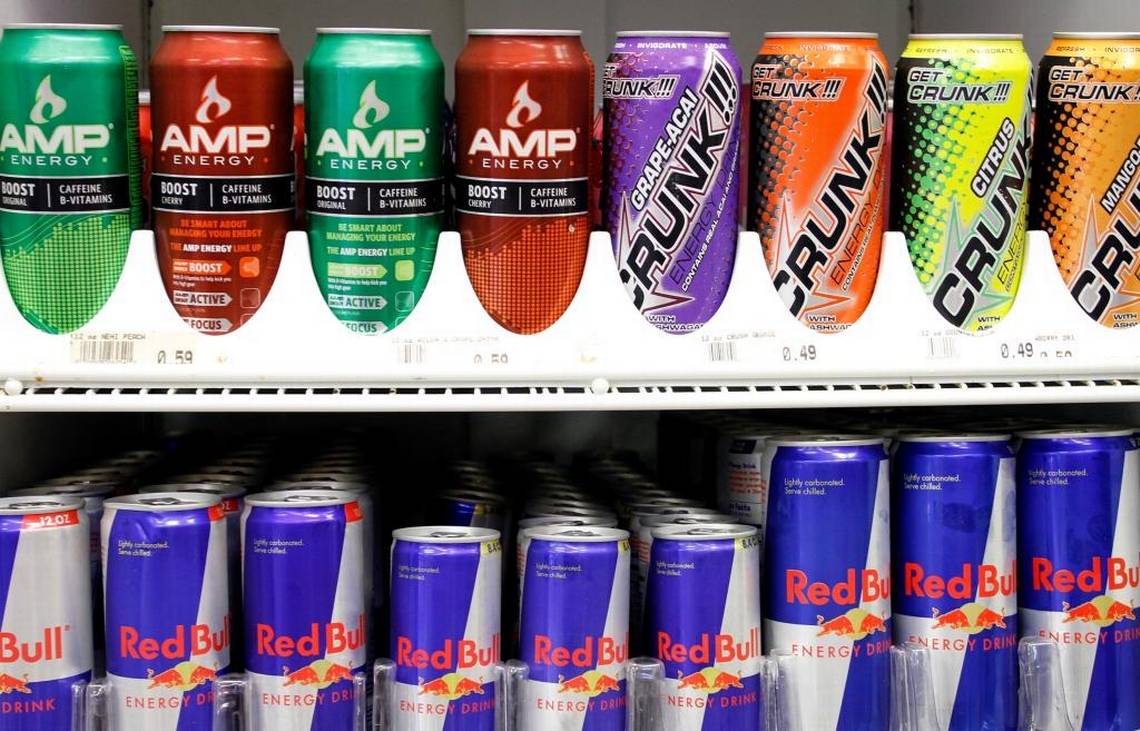Energy Drinks Don’t Belong In A Kid’s Diet, Experts Say

Dangers of energy drinks include dehydration, heart complications, anxiety and insomnia. The American Academy of Pediatrics recommends that preteens and teens do not drink them. ROBIN TRIMARCHI MCT
In April, a 16-year-old South Carolina high school student drank a McDonald’s latte, a large Mountain Dew and a 16-ounce energy drink in a span of about two hours. He passed out in art class, and by the time the dismissal bell rang at school that day, he was dead.
The official cause of Davis Cripe’s death was a caffeine-induced cardiac event, according to the coroner on the case. The caffeine in the teen’s system disrupted and ultimately stopped his heart.
The American Academy of Pediatrics recommends adolescents ages 12-18 not exceed 100 milligrams of caffeine a day, about the amount of caffeine in a cup of coffee. The organization also recommends that adolescents do not consume energy drinks, though a 2011 study revealed that 30 to 50 percent say they do.
The FDA does not regulate the amount of caffeine in energy drinks, but some contain up to 300 milligrams per serving — or three times the recommended limit.
“It’s a waste of calories. There's no nutritional benefit and a large component of caffeine that children don't need,” said Dr. Annie Casta, a primary care sports medicine doctor at Nicklaus Children’s Hospital. “The consensus overall is that energy drinks have no place in children or adolescents.”
Yet many teens routinely reach for energy drinks, said Lucette Talamas, a dietitian with Baptist Health South Florida.
“You have to look at what’s in them. Energy drinks contain stimulants that can add to the effects of caffeine. We know these things can cause cardiac as well as neurological effects,” Talamas said. “There also are herbal ingredients that not only have not been tested on teenagers, they haven’t been tested in general. When you talk about natural extracts, it's an unregulated industry, so the word natural is deceiving.”
In 2007, 1,145 adolescents ages 12-17 went to the emergency room for an energy drink-related emergency. By 2011, that number climbed to 1,499, according to the Centers for Disease Control and Prevention. Some of the dangers of energy drinks include dehydration, heart complications like irregular heartbeat and heart failure, anxiety and insomnia.
“If there is an underlying heart issue, this is dangerous, but even if you don’t have an underlying heart condition, too much stimulant — and because it's a central nervous system stimulant — is affecting your brain and heart,” Talamas said.
Energy drinks also have a lot of sugar, some up to 14 teaspoons, which is linked to obesity and chronic illness such as heart disease. Sugar-free energy drinks aren’t any better, she said.
“A teenager’s body is already going through a lot, including hormone changes. If a teen is also drinking coffee drinks, that’s a lot of caffeine that can add up in a day,” Talamas said. “You have to look at the aggregate effect on the body.”
The best way to get energy is through proper hydration, with water as the main source, she said. If you are doing prolonged sports for more than an hour in the Florida heat, sports drinks can be used, although they should be cut in half with water. Get enough sleep and eat a nutritionally balanced diet with healthy carbs.
“Distribute calories throughout the day, with three meals and two snacks,” Talamas said. “Eating consistently throughout the day is actually one way to maintain your energy levels.”
Story Credit: http://www.miamiherald.com/living/health-fitness/article162824503.html


